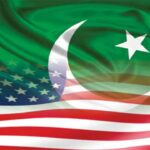Schlieffen Plan was not exceptionally designed. A lightly held front traps the enemy in the killing ground – and the rest of the force delivers the coup de grâce. What made it unique was the precision in planning and timing. As in a revolving door, one plank was to let the French Forces in, while the bulk of the German Army would sneak in from the other to hit them from behind. It failed when Moltke Junior, fearing early loss of territory, reinforced the trap at the cost of the main effort.
Defence of the East lies in the West was similarly envisaged – though in a different configuration. A stand-alone defence of our eastern wing, encircled by the adversary from three sides, was a tough proposition. However, a credible threat from its western twin could deter an Indian attack. If we had adequate strength in the West before the 71 crisis, can be argued, but after moving two divisions to fight the insurgency raging in what became Bangladesh, the concept had lost its logic.
In both the cases, success was contingent not only on making reasonable assumptions, but also creating conditions to fulfill them. On two other occasions we pulled-off missions, almost impossible.
To become a nuclear power, besides finding the requisite human and material means, the project had to be protected from external subversion and internal skullduggery. An autonomous organization was not only created but its sanctity safeguarded against great odds. And, since we had assumed that an Afghanistan free of foreign forces served our interest the best, support to the Afghan resistance against an invader was always ensured – despite costs and risks.
If that be the recipe for success: making rational assumptions and preparing the right grounds; how come that our man on the horseback, well schooled in the strategic art, embarked so often upon what is popularly, or pejoratively, called “political engineering” –but never once got it right!
Let’s assume the best-case scenario.
The engineer-in-chief is convinced that left to itself the country would go down the pipe; he also finds the right man to head the political pile; and the two of them set out to create a system to execute their plan. There would be hurdles no doubt. Beneficiaries of the old order, well-entrenched in polity, would do their best, or their worst, to subvert the change. With grit and wisdom one could still prevail. The chosen one might feel constrained by the khaki burden, but with the ‘same page mantra’, he should be able to turn it around to own benefit. No change ever came without a cost; in this case mostly by the elite – not easy to extract, but still possible. For durable gains the course must be kept for the long haul. Nevertheless, if the leadership was seen to be sharing the grind, the masses would be patient.
Some important institutions of the state were bound to come under stress. Courts will be inundated by petitions to prevent these upstarts from rocking the boat – and may have to be persuaded to give the new dispensation a sporting chance. Latest, when the time comes for the mandated change at the top, civil & military, rigging at the hustings and leaning on the judiciary may have to be taken to a new high.
If that was the likely curve in near ideal conditions, how would it look like in the real world!
Our Army Chiefs who undertook this enterprise were driven by a personal or an ideological agenda; occasionally to save their job, or to get rid of a ruling dynasty. Mostly those unlikely to make it on their own would volunteer to be the political pawns. Ones with reasonable standing or self-esteem would be reluctant to soil their credentials by riding to power on tanks. Soldiers of fortune jumping on the military bandwagon would be the norm. The government so cobbled together was thus likely to start with a major handicap. Unlike a functional political party it would have no cadres at the grassroots – but plenty of spoilers loyal to the earlier regimes. The civil-military combine on the other hand would be hard pressed to deliver in quick time; if for no other reason than to prove their naysayers wrong. Actions by the government would now be more like patchwork than part of an integrated whole. Long-term planning, especially its implementation, would be an exception. As one quick-fix leads to another, graver and more fragile, the process would look more like digging deeper in the hole.
No decision in this diarchic dispensation was likely to have a clear ownership. The worse part would be that since it’s risky to publicly blame the Army, ire against its meddling would be taken out on its civilian façade. And, in the unlikely event of the puppet regime picking up the courage to take a necessary but an unpopular decision, deep-down the people would curse the faujis.
The Godfather would now have an emergency on his hands – and of course a vested interest in salvaging this contraption. The problem is that the only technique that the big boss knows is twisting arms and banging heads. All institutions of the state would now be told to fall in line. The collateral damage would go beyond the collapse of the administrative system, or the freedoms guaranteed by the constitution. The wobbling political construct now needed a military prop for its survival, and the Builder-in-Chief too would be convinced that its mission was not yet accomplished. This time even the holiest of our cows would not remain untainted.
Judiciary has been under the cleavers ever since a wizard invented the doctrine of necessity. Civilian rulers too may not have much love lost for the rule of law, but they at least cannot put a gun at the bewigged heads to get the desired judgment. And that more than any other factor has tainted the institution of our last resort. The power may or may not corrupt but it certainly turns heads that get used to rampant power. Whenever an army chief has used his extraordinary powers to grab political, or perpetuate military, power, the worst sufferer has always been the sacred temple.
Our civilian chief executives, already suffering from paranoia and therefore looking for a loyalist or a pliable army chief, understandably went down the merit list to find one. It may have backfired every time – all coup makers and engineers were not the first on the list when chosen– but being no Einstein, they kept trying the same in the belief that next time the result would be different.
The proof of this jointly cooked pudding is in the after-taste. Every time the two mullahs left (after doing the proverbial murgha haram), precisely the powers they had planned to keep out of the corridors of power, marched right in, as if from a revolving door. However, as the most powerful figure in the country’s hierarchy, another potential engineer, this one suffering from hubris, will reinvent the wheel that only does static running.
However, since the Military could not simply watch from the sidelines if the larger system was seen to be unraveling, twice in our brief democratic experience, Army Chiefs intervened, to save it. Waheed Kakar suggested fresh elections to break a deadlock after the Supreme Court had restored the Sharif government dismissed by GIK, the President – with all political office holders remaining on their posts. But when Nawaz Sharif insisted on a mutually agreed caretaker arrangement, as an honest broker the COAS did not come in the way. Jehangir Karamat tried his utmost to get an all inclusive council created to advise the government on major policies. When frustrated, well aware of the vicious cycle of political engineering, he resigned.
The late Kamal Farooqi, essentially a western educated political scientist, talked to us in Quetta Staff College about the merits of the Islamic principal of consensual democracy. The post WW2 Germany evolved a rigorous democratic system that gives weightage to every single vote, but it also provides the ruling party, instead of steamrolling decisions that it can constitutionally do, a mechanism to create consensus.
PS: Ironically, it’s a military institution – the NDC, now the NDU – that has produced a large number of joint civil-military studies on Pakistani politics. The common thread in all of them: accept and reconcile diverse views. I am not sure if they ever found any commonality between Socrates’ criterion of a good ruler, ‘reluctance to rule’, and the Islamic philosophy that discourages volunteering for high office and trusts the people to find those most suitable. An emissary had to persuade Jinnah to return from London, and lead the Pakistan Movement.
Lieutenant General Mohammad Asad Durrani is a retired 3-star general from the Pakistan Army and presently a commentator, speaker and author. Durrani previously served as the Director General - Inter-Services Intelligence (ISI) and former Director General - Military Intelligence (MI)..








